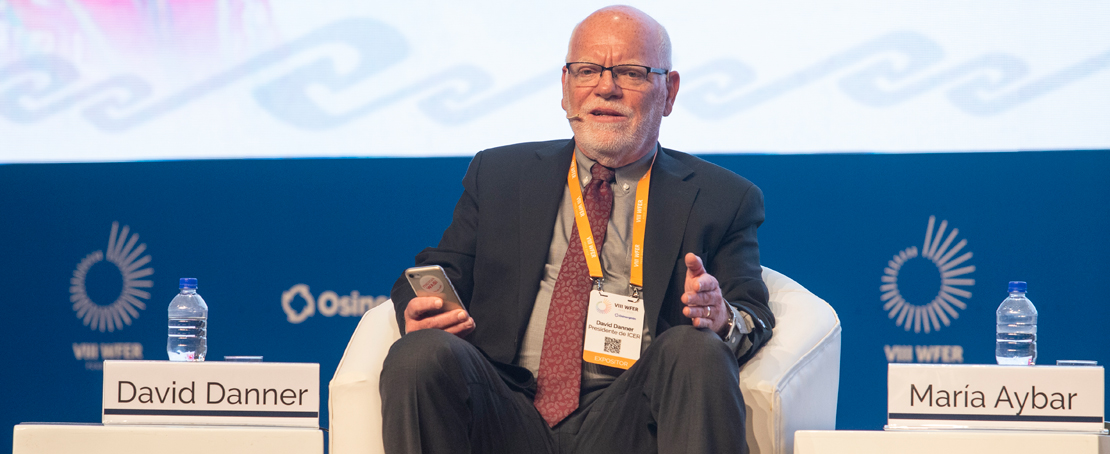David Danner: "If the decisions we make are not focused on the benefit of the public, we are in the wrong business"

The words of David Danner, president of ICER, have summarized the meaning and essence of the VIII WFER, where various aspects of energy regulation were addressed with more than 80 exhibitors from the five continents, including leaders, decision makers, intellectuals and scientists. “If the decisions we make are not focused on the benefit of the public, then we are in the wrong business. If you have a political calculation or another, we are doing things wrong”, pointed out the ICER leader in the plenary called In search of regulatory excellence
Likewise, Danner considered that passivity as regulators is not good: "We have to get actively involved in our environment, know what is happening, learn about new technologies, understand science." “We have to know the new technologies: wind, hydrogen, transportation, storage,” he added.
For her part, Silvana Romero, president of the Uruguayan Energy and Water Services Regulatory Unit (URSEA) pointed out that "as regulators we have the task of promoting a fair and inclusive energy transition." To achieve excellence, according to the highest authority of URSEA, "the regulator must have clear rules, independence and technical autonomy. It is a task for the regulator to strengthen its credibility”. Likewise, Romero emphasized the importance of "promoting the participation of interested parties [in energy regulatory processes], since the contributions received always tend to enrich the regulation."
Likewise, Hasam Ozkoc, director of the Mediterranean Energy Regulators (MEDREG), pointed out that there is no perfect regulation in the world. In his opinion, "a regulator must be characterized by its independence, transparency and good governance." The executive maintained that “when a norm is made, it must be disseminated by all possible means, especially through social networks or web pages; fluid communication must be maintained with the interested parties in order to know their opinions”. He added that for the formulation of policies, "those who design them, the administrations and consumers have to be involved."
Lastly, María Aybar Solis, vice president of the Hydrocarbons Committee of the National Mining, Oil and Energy Society, stated: "In light of what has been stated by regulatory agents around the world, I see that we have exactly the same objectives. I see that what we are lacking is communication.” “Osinergmin has allowed us to maintain a high standard and its participation has been very beneficial for the mining sector,” he added.
San Borja, August 25, 2023
